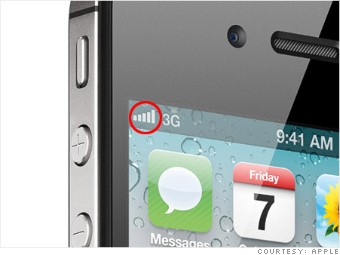

Every year, around the time of the iPhone's release, reports of problems plaguing Apple's new smartphone inevitably pop up.

The iPhone 3G launched in 2008 to much fanfare, as the device would be the first iPhone that could take advantage of AT&T's brand-new 3G network.
Well, it depends on what you mean by "take advantage." Users quickly complained about service problems, which AT&T eventually said was the result of a network overload. Data traffic on AT&T's network grew by about 5,000%, causing dropped calls in high-density areas like New York and San Francisco.
Years later, it turned out that wasn't the only problem. In 2010, Apple found a software glitch that had dated all the way back to the original iPhone: The phone often displayed two more signal bars than it should.
In an open letter to customers, Apple said that "upon investigation, we were stunned to find that the formula we use to calculate how many bars of signal strength to display is totally wrong."
Apple released a free software upgrade to address the glitch, and congestion problems have reportedly eased on AT&T's network.